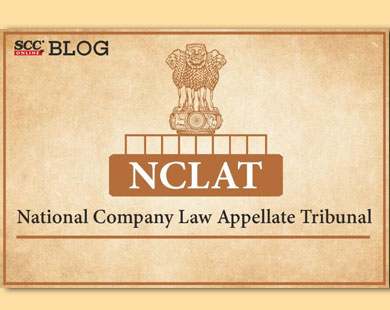National Company Law Appellate Tribunal, New Delhi: While adjudication an appeal challenging the initiation of Corporate Insolvency Resolution Process (CIRP) against the Corporate Debtor, a bench comprising of Ashok Bhushan, J. and Barun Mitra (Technical Member) held that the nature of financial debt would not change on account of breach of the consent terms.
In the present case, an application under S. 7 of the Insolvency and Bankruptcy Code, 2016 (IBC) was filed by the respondent no. 1, IREP Credit Capital Pvt. Ltd. (Financial Creditor) before the Adjudicating authority seeking initiation of CIRP against the appellant, Corporate Debtor, Rajesh Landmark Projects (P) Ltd on account of default of payment of financial debt. The respondent no. 1 withdraws the petition with the liberty to revive the same in case of default, after both the parties with other stakeholders entered the Consent Terms to make the payments. The respondent no. 1 filed a fresh petition under S. 7 IBC instead of reviving the earlier petition seeking initiation of CIRP against the Corporate Debtor after the appellant defaulted in making payments as per the Consent Terms. The Adjudicating Authority vide order dated 10-10-2022 admitted the fresh application and initiated CIRP against the appellant. Aggrieved by the impugned order passed by the Adjudicating Authority, the appellant filed an appeal before the Tribunal challenging the same on the ground that breach of consent terms cannot be treated as a financial debt.
The Tribunal observed that the subsequent S. 7 application is based on the original financial debt which was extended by the financial creditor to the corporate debtor rather than on the default of the consent terms.
The Tribunal stated that “The mere fact that in earlier company petition, consent terms was arrived, which consent terms was breached by the corporate debtor, the financial debt which was claimed by the financial creditor would not be wiped out nor the nature and character of financial debt shall be changed on account of breach of the consent terms. Permitting such interpretation shall be giving premium to the corporate debtor who breach the consent terms.”
The Tribunal observed that though the Consent Terms provide for reviving the company petition on default but filing of fresh company petition under S. 7 IBC shall not be rejected or entertained merely because of that reason.
The Tribunal observed that merely because the majority debenture holders have not initiated any application under S. 7 IBC should not be the reason to preclude the financial creditor from filing the said application on his own motion.
While upholding the impugned order of admission of fresh application and initiation of CIRP against the Corporate Debtor, the Tribunal dismissed the appeal with liberty to file an application under S. 12-A IBC, in case any settlement is arrived between the parties, to the appellant.
[Priyal Kantilal Patel v. IREP Credit Capital (P) Ltd., 2023 SCC OnLine NCLAT 51, decided on 01-02-2023]
Advocates who appeared in this case :
Mr. Abhijeet Sinha, Mr. Nitin Mishra and Mitali Gupta and Mr. Akash Chatterjee, Counsel for the Appellant
Mr. Vikas Mohta and Mr. Pranav Sarthi, Counsel for the Respondent No. 1;
Mr. Pranjit Bhattacharya and Ms. Raj Sarit Khare, Counsel for the Respondent No. 2.
*Ritu Singh, Editorial Assistant has put this report together.






